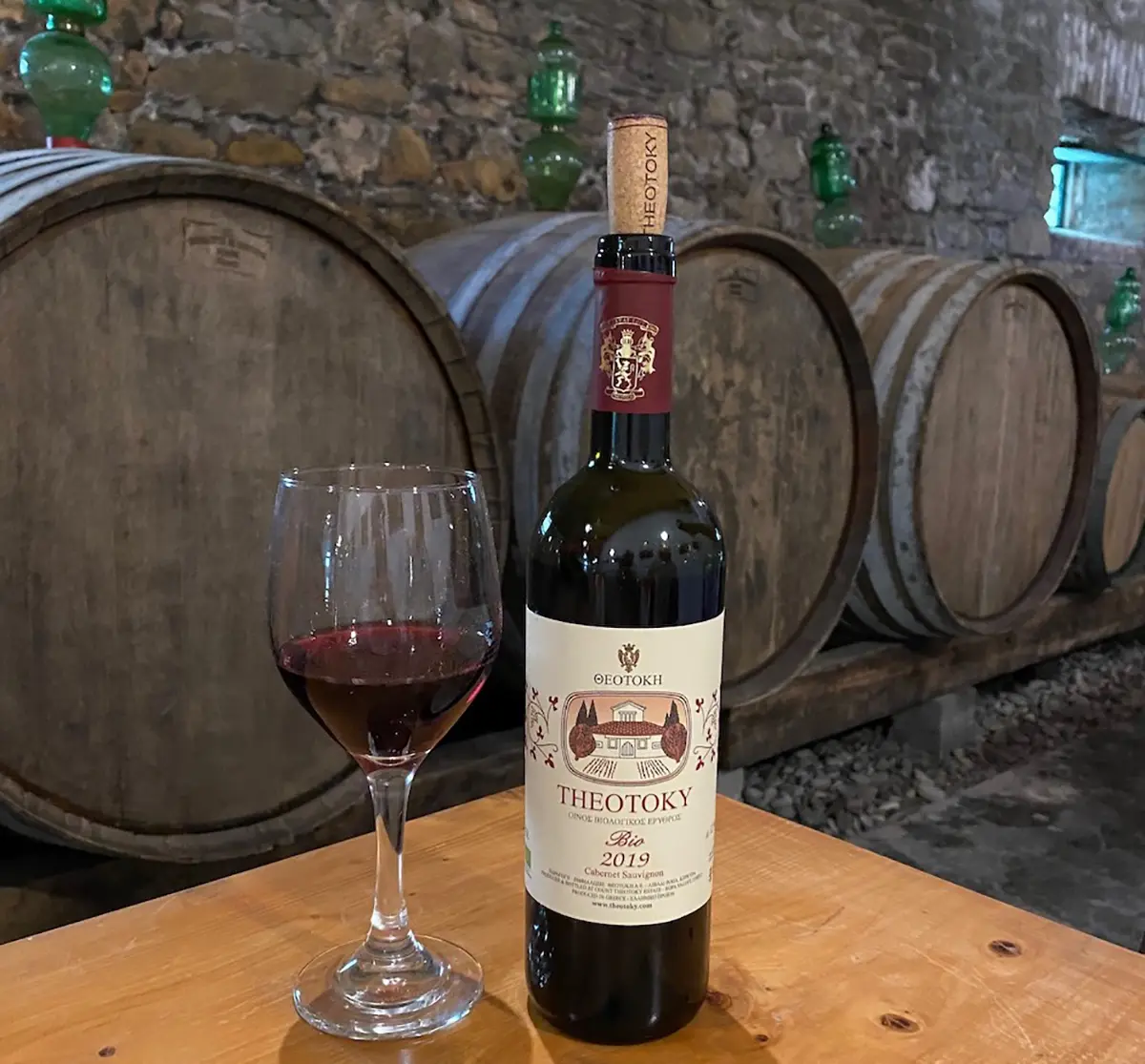Corfu, with its deep connection to nature, culture, and tradition, is not only known for its turquoise waters and architecture with strong Venetian elements. It is also a land that for centuries has produced fine wine. From Homeric times to the modern era, wine production in Corfu is a journey through time, full of stories, vineyards, traditional grape varieties, and a constant desire for quality and identity.
The island’s wine tradition begins, according to legend, with the Phaeacians, the mythical people who welcomed Odysseus and offered him abundant wine. During the Byzantine and medieval years, viticulture flourished, with Venetian records noting wine exports to Venice. However, with the Venetian promotion of olive cultivation in the 17th century, a large number of vineyards were uprooted in favor of olive groves. Despite this, some of the indigenous varieties survived, with courage and persistence, in isolated, hard-to-reach vineyards, until the modern era came to bring them back to the forefront.
Among these varieties, Kakotrygis stands out, the queen of Corfu’s white wines. Its name comes from the difficulty in harvesting it, due to its small, dense grapes. It is a variety with delicacy, refreshing acidity, and a fresh character, producing wines with floral and slightly herbal aromas, ideal for pairing with seafood or fresh salads. The island’s winemakers, making use of its potential, experiment with dry and sparkling versions, giving new life to an old variety. Another important white variety is Petrokorithos, less widespread but with an interesting flavor profile: moderate acidity, gentle aromas, and a light body, it is a refined choice for lovers of mild white wines.
In the world of reds, Corfu presents Skopelitiko, a rare variety which, despite the origin its name suggests, has found expression on the island. It mainly produces rosé wines with a subtle nose, soft structure, and fruity aftertaste. Also of interest are the local varieties Mantzavi and Vertzamo, cultivated on a small scale, but serving as valuable carriers of Corfu’s wine DNA.
The landscape of modern producers is small but vibrant. Wineries such as Theotoky Estate in the Ropa Valley, with a history dating back to the 19th century, have invested in modern techniques and organic methods, producing wines from Kakotrygis and Robola with balance and philosophy. The Gouli family, in Liapades, with their “Peperosa” (rosé from Skopelitiko) and “Amorosos” (red), offers handcrafted, low-yield productions that preserve the freshness and authenticity of the raw material. At the same time, Grammenos Winery in Sinarades continues small-scale production with respect for tradition, while in the southern part of Corfu, new efforts such as Pontiglio and Borovino wineries bring the indigenous variety back to the spotlight, with experiments combining modern oenology with the local terroir.
The flavors of Corfiot wines are subtle, without excess, with acidity that provides freshness and allows broad use in gastronomy. These are not heavy, imposing wines but mild, flexible products with high aging potential. The good balance between aromas and taste transparency makes them ideal companions for local dishes: from bourdeto and pastitsada to light fish marinades, the combinations are numerous.
Today’s course of Corfiot wines is not limited to local consumption. There is strong interest from wine lovers and wine tourists, as the tasting routes created in Ropa, Sinarades, and Lefkimmi offer a unique experience. Visitors have the chance to see the vineyards up close, talk with producers, taste wines directly from the tank or barrel, and learn the story of each grape.
The revival of Corfu’s local wines over the past twenty years is a remarkable phenomenon on the Greek wine map. With limited agricultural land dedicated to viticulture, about 7% of the island’s agricultural potential, and without official Protected Designation of Origin zones, producers rely mainly on quality, history, and the distinctiveness of the local land. The small-scale wineries maintain high standards, create premium products, and make use of the island’s exceptional taste identity. Thus, Corfu wines are crossing the Ionian borders and beginning to find their place in specialized restaurants and wine shops across Greece and abroad.
In every sip of a good Corfiot wine, something deeper than taste is discerned: it is the storytelling of a place, the reflection of its land, the people who cultivate it, and the culture they inherit. It is not just a product; it is a modern testament to how an island can honor the past and shape a wine future with personality, consistency, and passion.






Comments are closed